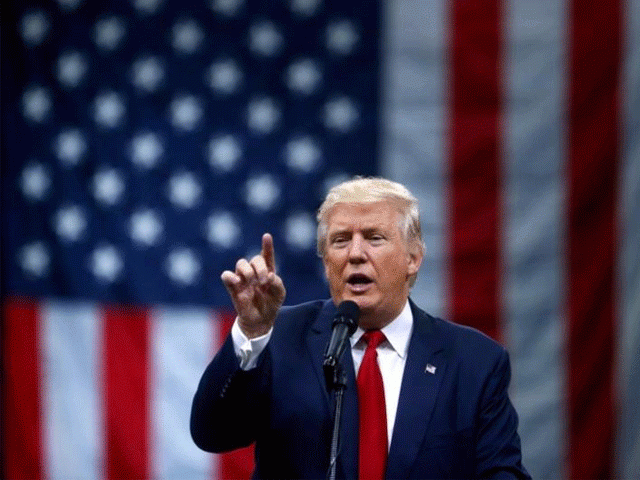Global trade war: costs and consequences
Economists warn new measures raise costs of inputs for goods produced in the US, and increase prices of imports

US President Donald Trump. PHOTO: REUTERS
Economists warn the measures themselves raise costs of inputs for goods produced in the US, and increase prices of imports to consumers. But the consequences could be more far-reaching as other countries retaliate, hitting the US and global economies.
Trump's unilateral decision to impose import tariffs of 25 per cent on steel and 10 per cent on aluminum, is nearly certain to prompt US trading partners to retaliate, and file a trade dispute with the World Trade Organization (WTO).
WTO warns of trade war over new Trump tariffs
The European Union already announced it is preparing countermeasures for US products: Harley-Davidson, bourbon and Levi's jeans.
"We will not sit idly when European industry and jobs are threatened," European Commission chief Jean-Claude Juncker said.
China said it would adopt the "necessary measures" to defend its exporters, and has initiated an anti-dumping investigation on imports of US sorghum and signaled it may target US soybeans.
Gregory Daco of Oxford Economics also said there is a risk other economies, like the European Union, could impose their own steel restrictions to protect their markets from being flooded by metal that otherwise would have gone to the United States.
Asian markets tumble as Trump tariffs fan trade war fears
Trade is a major contributor to global economic growth and the International Monetary Fund (IMF) has repeatedly warned that protectionist policies could jeopardize the worldwide recovery.
"The import restrictions announced by the US President are likely to cause damage not only outside the US, but also to the US economy itself," IMF spokesman Gerry Rice said in a statement Friday.
Newly-installed Federal Reserve chief Jerome Powell this week also cautioned against tariffs as a way to address trade issues.
Powell said "trade is a net positive" to the US economy and "the tariff approach is not the best approach" to helping those communities left behind.
Economists say the impact depends on how other countries retaliate.
Trump blasts EU trade policy with US as 'very unfair'
"The economic effects of these tariffs on the macroeconomic environment will depend critically on whether they damage business and household confidence," said Mickey Levy, at Berenberg Capital Markets.
"Whatever the reason, imposition of these tariffs is bad economic policy and its timing is inopportune."
Daco said the tariffs could start to impact US economic growth very soon, especially if retaliation ramps up.
Taxing imported products could result in higher prices in many sectors. Japanese automaker Toyota already warned that if it was no longer able to import cheap steel for its US factories, prices would increase considerably.
This could slow consumption, a risk for US growth traditionally driven by household consumption.
Daco noted that while US plants can increase domestic production of steel and aluminum, the cost will be higher than imported metal so "you're also going to get impact of higher domestic production costs passed on to consumers."
US agricultural groups deplored the new protectionist measures, pointing out that by wanting to protect steel and aluminum producers, he opened the way to reprisals that would severely affect other sectors such as agriculture. Grain farmers are now dreading taxes on their soy exports to China.
They were joined by can manufacturers, business groups and other industry in calling for the White House to reconsider given the potential damage to their industries.
In 2002, the-President George W Bush imposed steel taxes that remained in effect for just over 18 months. During this period, economists estimate about 200,000 American jobs were lost.
The United States, Canada and Mexico have been engaged for more than six months in a difficult renegotiation of the North American Free Trade Agreement (NAFTA).
In effect since 1994, Trump has called the pact a "disaster," and he has repeatedly threatened to abandon it if the talks do not result in a better deal for American companies and workers.
While the seventh round of talks is to end Monday in Mexico, many experts said Friday that the announcements of the US president were likely to complicate the task of the negotiators of the three countries.



















COMMENTS
Comments are moderated and generally will be posted if they are on-topic and not abusive.
For more information, please see our Comments FAQ